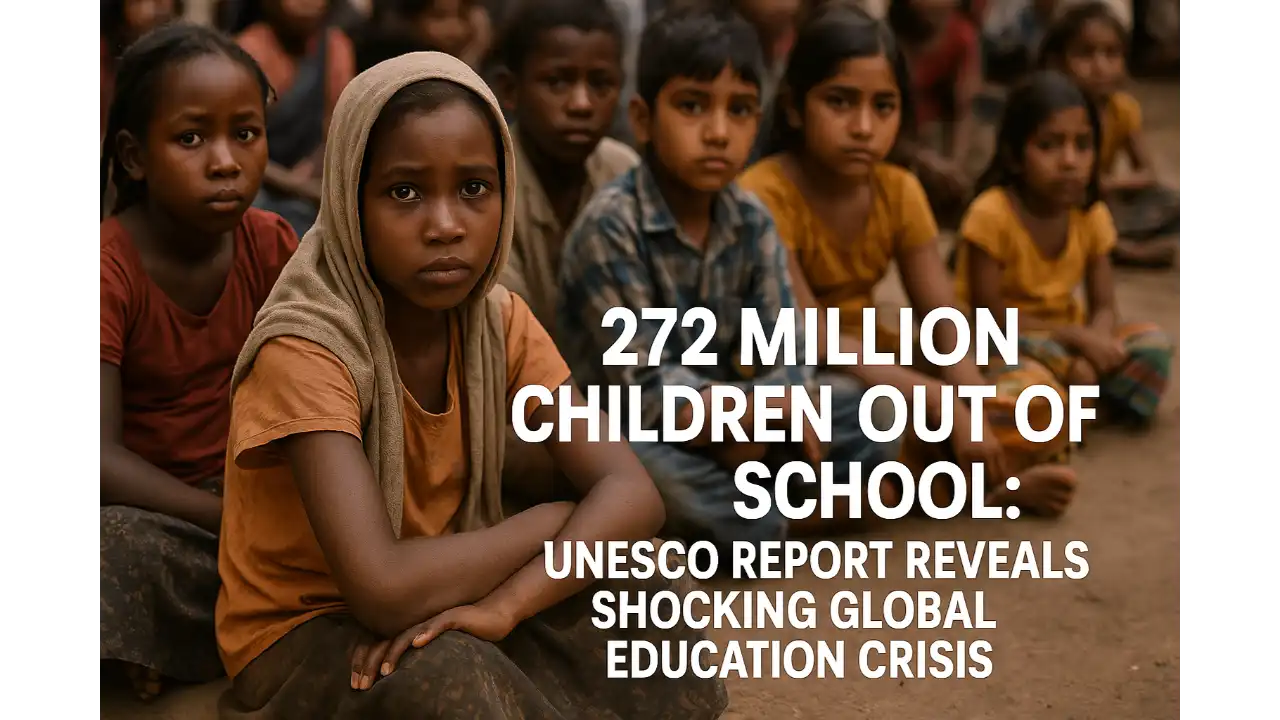A Growing Crisis in Education
The world is facing an alarming education crisis, with a staggering 272 million children and youth out of school, according to UNESCO’s latest Global Education Monitoring (GEM) report. This marks an increase of 21 million since the last estimate, painting a grim picture of global education access.
Why the Sudden Jump?
The report highlights two major reasons for this surge:
-
New Data on Enrollment & Attendance – Updated figures account for 8 million of the increase, including the devastating impact of Afghanistan’s ban on girls’ secondary education since 2021.
-
Revised UN Population Estimates – The remaining 13 million rise comes from updated projections, revealing 49 million more 6-17-year-olds by 2025 than previously expected.
Conflict Zones: The Hidden Crisis
Wars and instability are making the problem worse—but the true scale remains underestimated because conflict disrupts data collection. Countries in crisis often lack accurate records, meaning millions of displaced or traumatized children go uncounted.
Who’s Missing Out?
-
78 million primary school-age children (11%)
-
64 million lower secondary adolescents (15%)
-
130 million upper secondary youth (31%)
These numbers show a disturbing trend: the older children get, the less likely they are to stay in school.
Why Are So Many Children Left Behind?
-
Poverty – Many families can’t afford schooling costs.
-
Conflict & Displacement – Wars destroy schools and force children into labor or early marriage.
-
Gender Inequality – Girls, especially in places like Afghanistan, face extreme barriers.
-
Data Gaps – Some countries lack reliable tracking systems, masking the real crisis.
Will Things Improve by 2025?
Unfortunately, no. The report warns that 75 million children will still miss their national education targets by 2025. Without urgent action, the world risks failing an entire generation.
What Can Be Done?
-
Increase Funding – Governments and donors must prioritize education in crisis zones.
-
Support Girls’ Education – Removing barriers for girls could transform communities.
-
Better Data Collection – Accurate tracking is essential to measure progress.
Final Thoughts
Education is a fundamental right—yet millions are being left behind. The world must act now before this crisis becomes irreversible.








